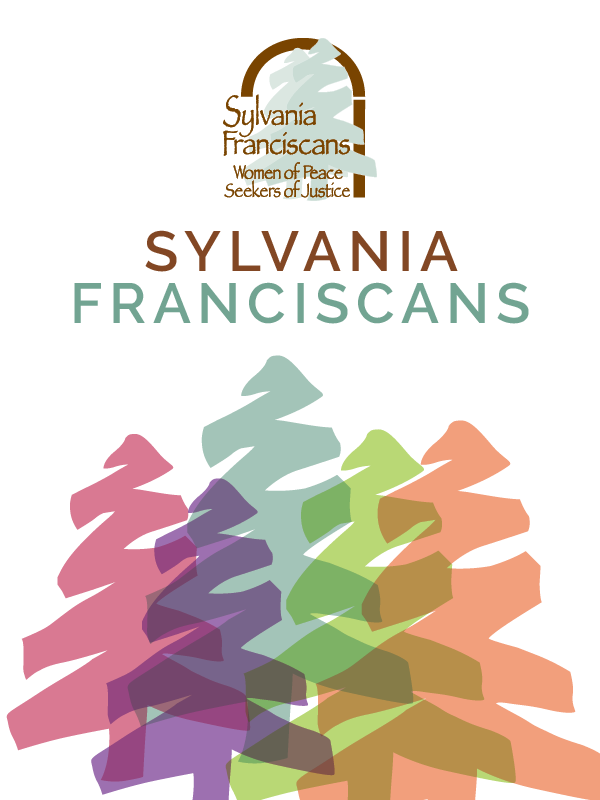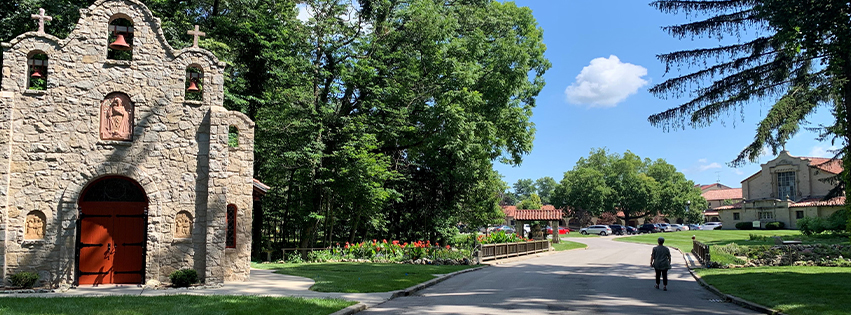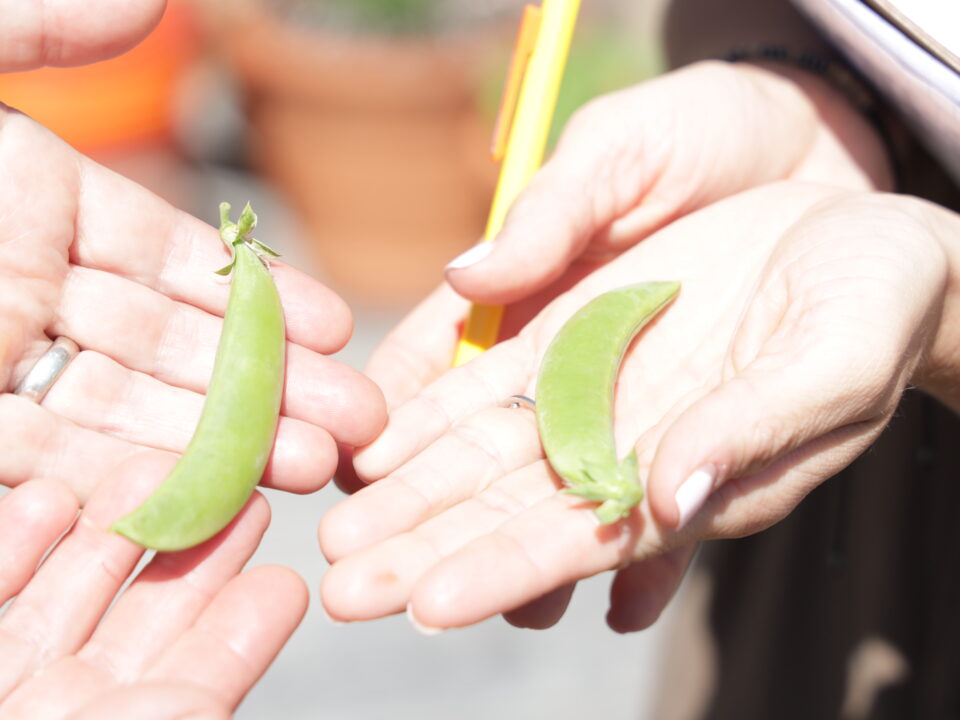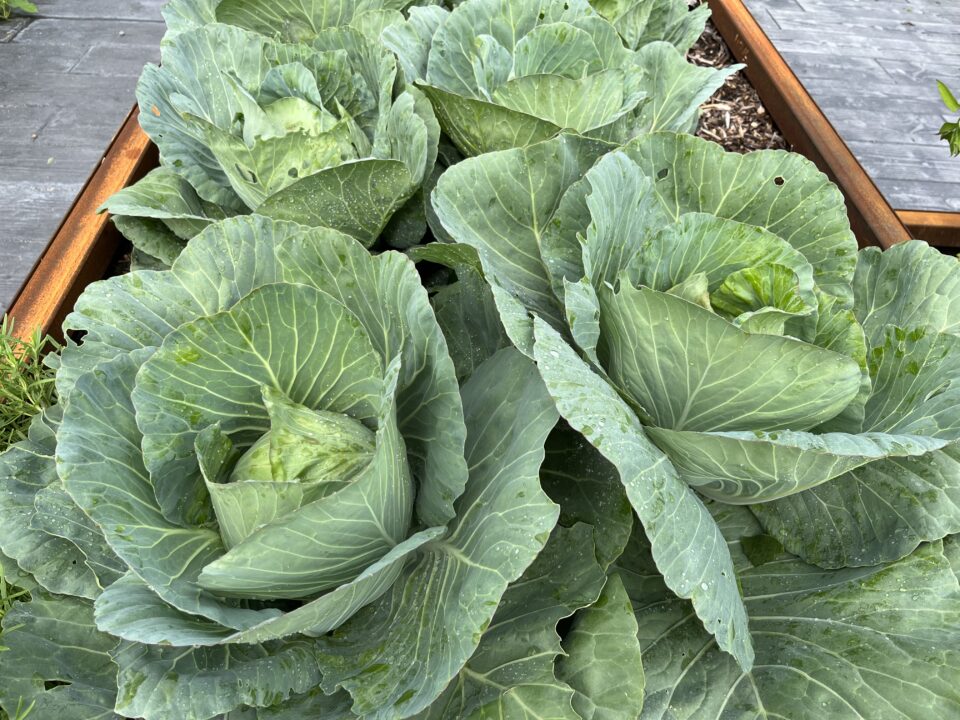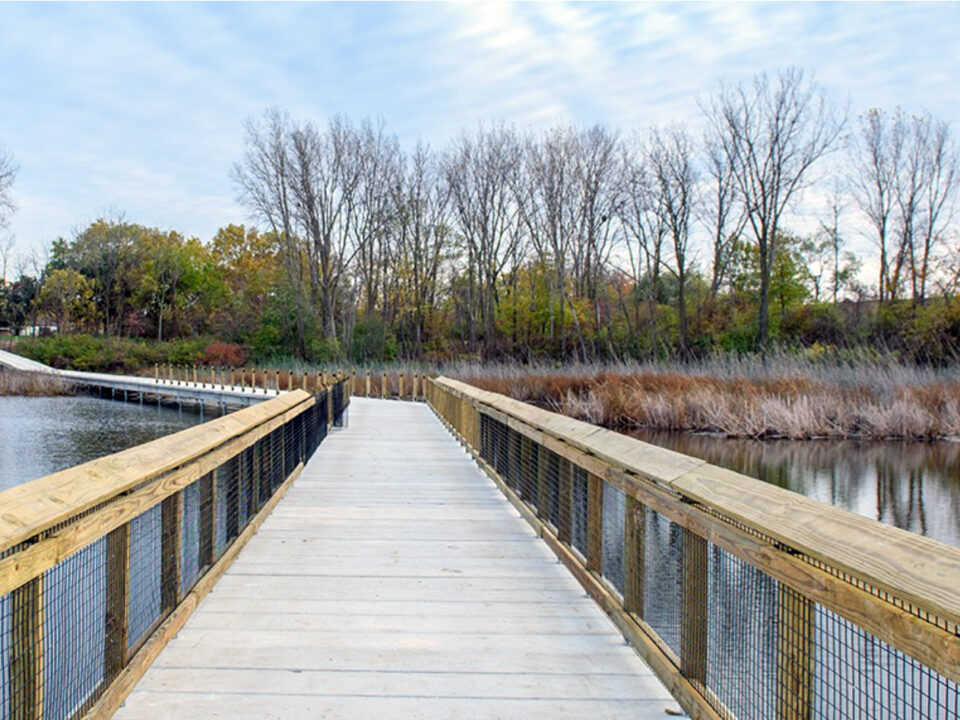
Sister M. Samuel Lubeck, OSF
April 11, 2024
A Sacrament of Awe
May 10, 2024by Sara Grunberg
May 2024
In coming months, I plan to take a closer look at some of the ecological buzz words and concepts, such as ‘sustainability,’ and, each month, I’ll pose one action challenge for each of us to try to adopt. Keep an eye on the monitors around campus and on social media for guest appearances from Sisters, staff, faculty and students in reels and other posts. And please! Be sure to snap a photo of a ‘Sustainable Moment’ you are proud of and share it!
Let’s get started.
sus·tain·a·bil·i·ty
/səˌstānəˈbilədē/
noun: the ability to be maintained at a certain rate or level.
“the sustainability of economic growth”
avoidanceof the depletionof natural resources in order to maintain an ecological
“the pursuit of global environmental sustainability”
Sustainability. Perhaps because this ordinary practical word holds the keys to a healthy planet, it sounds much more complicated than it really is.
 The concept of sustainability has been around since 1713, first coined in forestry as a concept of never harvesting more than what the forest yields in new growth (Kuhlman, 2010). In recent years, the growing concern for environmental and climate change, intertwined with issues of poverty, and increasing disparity between societies have placed sustainable development in the spotlight (Giovannoni, 2014). Sustainability encompasses a vast array of concerns, which holds different definitions for each. Broadly, environmental sustainability is defined by the ability to maintain the systems that are valued in the physical environment and ecological balance (Sutton, 2004). In simpler terms, sustainability means to never take more from a system than what is needed to function at its current state to provide for future generations.
The concept of sustainability has been around since 1713, first coined in forestry as a concept of never harvesting more than what the forest yields in new growth (Kuhlman, 2010). In recent years, the growing concern for environmental and climate change, intertwined with issues of poverty, and increasing disparity between societies have placed sustainable development in the spotlight (Giovannoni, 2014). Sustainability encompasses a vast array of concerns, which holds different definitions for each. Broadly, environmental sustainability is defined by the ability to maintain the systems that are valued in the physical environment and ecological balance (Sutton, 2004). In simpler terms, sustainability means to never take more from a system than what is needed to function at its current state to provide for future generations.
Environmental sustainability focuses on maintaining the systems of the natural environment within a defined capacity without driving the environment to a tipping point, that may not function within its known capacity. According to the Millennium Ecosystem Assessment, changes in ecosystem services are almost always caused by multiple, interacting drivers. The benefits we obtain from the ecosystem such as air, water, food, fuel, aesthetics, nutrient cycling, climate regulation, and more are defined as ecosystem services. These are services that are free to us that we benefit from by nurturing the systems to perform within their natural cycles. There are several environmental issues we are currently facing threatening ecosystem services and the environment.
One area of concern for the sustainability of the environment is global population growth. In the past 40 years, global population has doubled, and increased by 2 billion people in the past 25 years, resulting in an exponential population growth (MA, 2004). Developing countries have accounted for the most population growth in the past quarter-century (MA, 2004). The increase in population adds an increased pressure to the environment to sustain the population, leading to approximately 60% of the ecosystem services degraded or used unsustainably. The natural processes of the environment happen at a slow rate, that cannot keep up with the pace of the population growth. The balance between human activity and natural resources required to sustain each other is tipping towards degradation and exploitation of the environment, due to the pressures of increased population.
Another example of unstainable management of the land is large-scale extraction of non-renewable resources, which can create threats of serious decline in the quality of the natural environment. Since 1750, the atmospheric concentration of carbon dioxide has increased by 41% (from about 280 to 424 parts per million in 2024), primarily due to the combustion of fossil fuels and land use changes (MA, 2004). Exploiting fossil fuels leads to large amounts of carbon dioxide being emitted into the environment mainly for transportation and energy.
The carbon dioxide gets trapped within our atmosphere and warms the temperature of the planet. This can have harmful effects on human health, ocean acidification, bleaching of the coral reefs, declining biodiversity, increasing pests, melting of icebergs, and animal migratory patterns. The pressure we are putting on the environment to keep up with our daily practices, is leading us into a tipping point that warrants an unknown domino effect of self-propelling changes.
Sustainability is something that has not been ignored here on campus. The Sisters of St. Francis of Sylvania have embraced the call to care for creation. Sustainable efforts that have been initiated by the Sisters such as composting, the grateful harvest community garden, geothermal renewable energy, and beehives, are examples of some of your tangible commitment to tending to God’s creation.
CALL TO ACTION: USE REUSABLE BAGS AT THE STORE. Don’t have any or forget them in your car? Buy a few new ones to save or give to a friend.
Please share your success with this challenge by submitting a picture of you using your reusable bag to Maegan Anders (manders@sistersosf.org).
Together, small choices can provide great impact. This earth is not ours to inherit, but one we need to protect for future generations.
Sara Grunberg
 In the role of Sustainability Coordinator for Lourdes University and the Sylvania Franciscans, Sara Grunberg works as the common link between all campus ministries in achieving a sustainable campus. Sara was raised in the Franciscan tradition as a student at Sylvania Franciscan Academy, later graduating from Notre Dame Academy. At the University of Dayton, she earned a B.S. in Environmental biology, worked on a student-run farm, and learned beekeeping. From there, she attended the College of Charleston for a master’s degree in environmental and sustainability studies.
In the role of Sustainability Coordinator for Lourdes University and the Sylvania Franciscans, Sara Grunberg works as the common link between all campus ministries in achieving a sustainable campus. Sara was raised in the Franciscan tradition as a student at Sylvania Franciscan Academy, later graduating from Notre Dame Academy. At the University of Dayton, she earned a B.S. in Environmental biology, worked on a student-run farm, and learned beekeeping. From there, she attended the College of Charleston for a master’s degree in environmental and sustainability studies.

